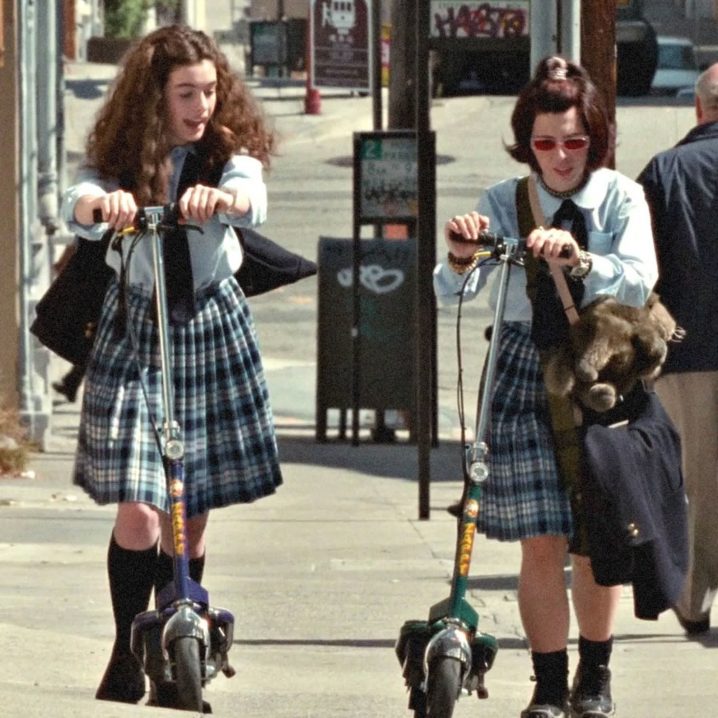
- POPSUGAR Australia
- Living
- “She’s Just the Toxic One”: 3 Red Flags That Will Tell You If Your Friendship Is One-Sided
“She’s Just the Toxic One”: 3 Red Flags That Will Tell You If Your Friendship Is One-Sided

We can all relate to feeling like a friendship is one-sided or toxic, but not know how to handle it. It can be tricky to identify who’s to blame — especially if you’ve known eachother for a long time. You may have been putting up with their behaviour for so long — that you don’t know how to address it. Or you could be afraid that sharing your feelings, might cost your friendship.
“The first step is addressing these issues is with ourselves,” says counsellor and Psychotherapist Lisa Barrett. “If we notice a pattern of not feeling great before, during or after contact with a particular friend, do we have a sense of why that is? Are there other times that we feel like this? What is the common denominator?”
“You need to ask yourself if it’s something that someone else does that is triggering you, or if that feeling is something that you’re creating. It might have nothing to do with your friend, but how we are when we are with them! What exactly is it about this relationship that leads to you having these feelings?
“Before doing anything else, we need to know what is happening inside ourselves.”
While it’s important to check in with ourselves and take responsibility for how we’re feeling first, it can also help to identify whether or not the friendship is actually toxic.
To do this, you’ll need to recognise the three red flag below, which, according to Barrett, are three clear signs of a one-sided friendship.
You Don’t Feel Good After Seeing Them
One clear red flag, is when you begin notice yourself feeling resentful or dissatisfied after time spent together, says Barrett. “Although perhaps we never quite put our finger on exactly why, we are aware that the catch ups with this friend leave us feeling somewhat discontent or out of sorts.”
According to Barret, this can be a sign that there is something amiss with the friendship. “Although it could be due to any number of reasons, it can be a sign that this is not a two way relationship.”
They Never Initiate
When you find that you are always the one reaching out, doing the organising and constantly being the person to chase up the plans — that’s a big red flag.
“You find it has become habitual for you to include this person in your social activities or catch ups or events. But at some point you notice that you have been the only side instigating contact. This is a red flag because it is literally one way when it comes to arranging time together and healthy friendships involve give and take and some mutuality.”
Others Start to Notice
“Other friends wonder out loud to us why we are friends with that person. Have you ever had one or more people question with somewhat bemused looks, why you are friends with a particular person?”
It’s always an eye-opener when a third party chimes in. And while it’s important to not let anyone else cloud your judgement and to remember that they are not personally involved, other people’s perspectives can also be a super insightful tool to lean on.
“There is usually a reason for their question and it tends to be that they see you putting more into the friendship that you appear to get out of it. It can also be that they hear you complaining about it a lot and wonder why you stay in it when it appears to cause you so much angst!”
Now what?
If the three red flags above have resonated with you and you’re pretty certain that your friendship is toxic or one-sided, there’s a few things you can do.
Try to be Open and Communicate
“Depending on what the friendship means to us — do we want to keep it or has it run it’s course — talking about how you feel is really good. Ask yourself questions like: What is making it one sided? Is it a friendship we would like to continue if it felt more mutual? Or is it a friendship that was good for a reason or a season and has run its course?”
“Being open and communicating our feelings is almost always a good thing. However, not with everyone, all the time! hat do we want to achieve by being open- to be seen, to be heard, to increase connection? Who are we choosing to be open to, are they available or receptive? Are we open to dialogue, to hear what their feelings and thoughts are too?”
Respectfully Cut Ties
If you feel the friendship has run it’s course, something it’s best to bow out gracefully. If you don’t really know how to communicate effectively with your friend, maybe it’s simply time to move on. Or at least, spend some time apart and come back to the friendship with a fresh perspective.
Talk to Someone Else About It
Whether it’s your mum, a professional or another friend, try to talk it out. Often, we can get so caught up in our own emotions, that we struggle to get clarity on the dynamic. Talking about it with someone else can help give you perspective, which can help you to decide how you feel and what to do.


